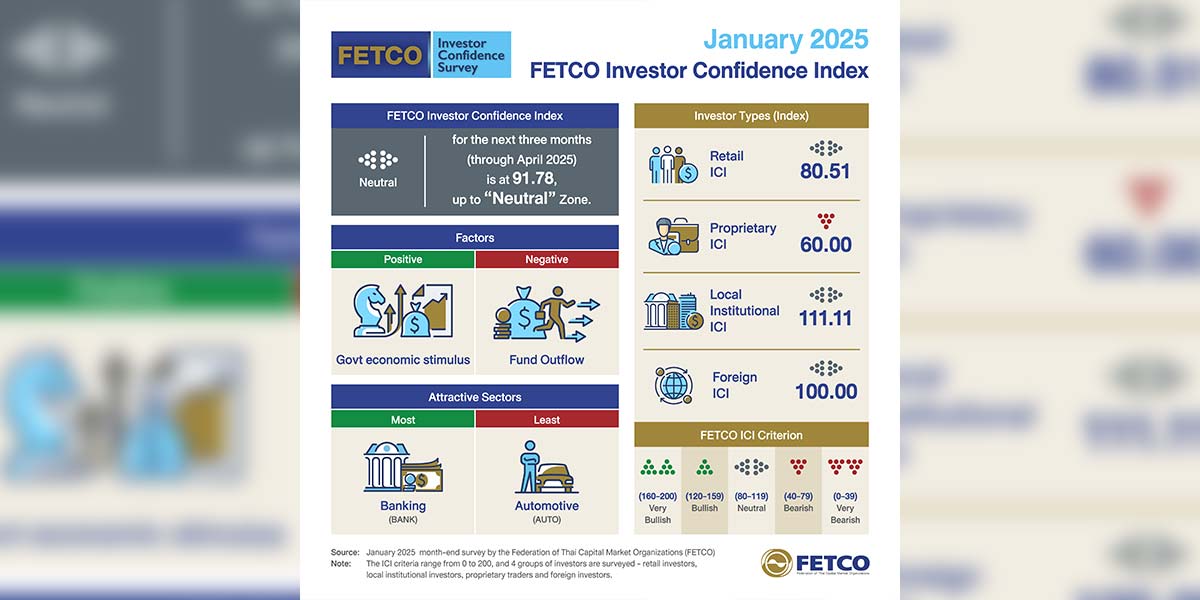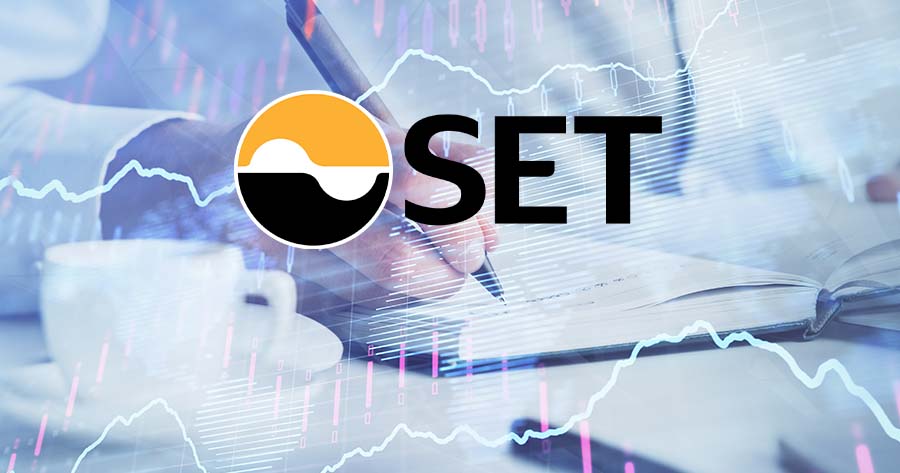Kobsak Pootrakool, Chairman of the Federation of Thai Capital Market Organizations (FETCO), revealed that the FETCO Investor Confidence Index (FETCO ICI) in January 2025 (conducted during 20-31January 2025), which anticipated the market condition over the next three months, rises slight to ‘neutral’ zone at 91.78. The government’s stimulus packet is the most supportive factor, followed by listed firms’ earning results and fund inflow. In the meantime, fund outflow, local economic slowdown and China’s economic situation are top three dampening confidence.
Highlights of FETCO Investor Confidence Index surveyed in January 2025 are as follows.
- Overall FETCO Investor Confidence index for the next three months (April 2025) is in “neutral” zone (80-119 of FETCO ICI Criterion) at 78.
- Confidence of retail investor, institutional investor and foreign investor is in “neutral” zone while that of proprietary is in “bearish” zone.
- Most attractive sector is Banking (BANK).
- Least attractive sector to investors is Automobile (AUTO).
- Most influential factor driving the Thai stock market is the government stimulus package.
- Most important factor impeding the Thai stock market is fund outflow.
“The survey results in January 2025 show that confidence of retail investor is down 6.1 percent to 80.51, proprietary investors down 14.3 percent to 60.00, institutional investors up 42.9 percent to 111.11 and foreign investors up 33.3 percent to 100.00.
In January, SET Index headed south throughout the month, pressured by matured LTF redemption, foreign investor’s continued sell-off and worries over international trade and investment following an anticipation on the U.S. tariff policy. At month-end, SET Index closed at 1,314.50, down 6.1 percent from the previous month with an average daily trading value of THB 39,006 million. Foreign investors were net sellers of THB 11,504 million.
External factors to monitor include U.S. trade war against Canada, Mexico, and China, which will take effect in February 2025. This may impact inflation and Fed’s policy cut decision while political uncertainty in France and Germany may push European economy into recession. Eyes are also on how the Chinese government’s capital market stimulus would yield results following the government’s plan to encourage insurers and funds to increase their investment in Chinese stock market over the next three years. Locally, investors follow domestic consumption growth following the government’s stimulus package, public investment direction, trend of policy rate cut by the Bank of Thailand’s Monetary Policy Committee and earnings results of listed companies.”





